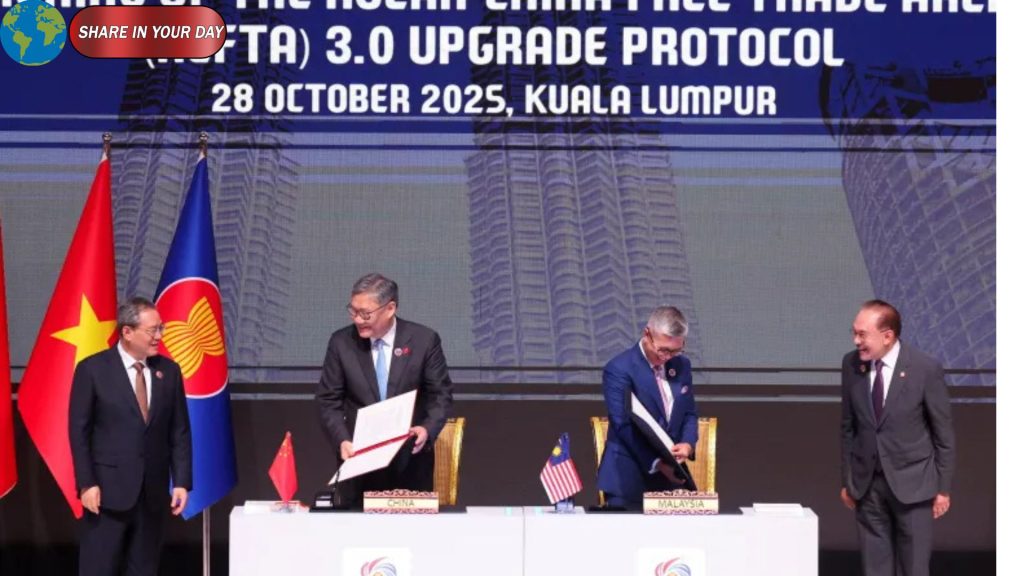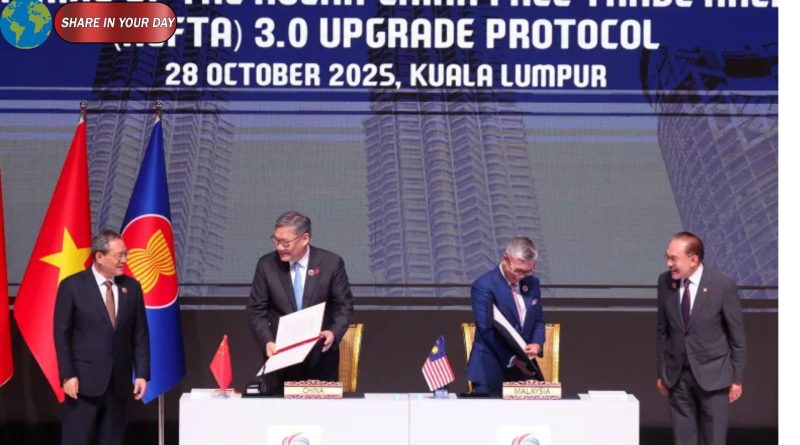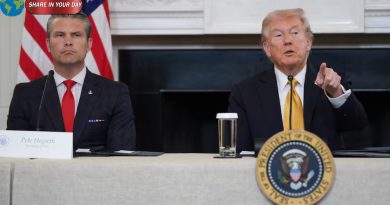China and ASEAN Strengthen Economic Ties with Upgraded Free Trade Pact Amid Ongoing U.S. Tariffs
In a significant move to bolster economic cooperation, China and the Association of Southeast Asian Nations (ASEAN) have signed an enhanced version of their free trade agreement. The agreement, known as the ASEAN-China Free Trade Area 3.0 Upgrade Protocol, was finalized on October 28, 2025, during the 47th ASEAN Summit in Kuala Lumpur, Malaysia. The signing ceremony was attended by Chinese Premier Li Qiang and Malaysian Prime Minister Anwar Ibrahim.
This upgraded pact aims to deepen collaboration across various sectors, including infrastructure development, digital economy, green transition, trade facilitation, and people-to-people exchanges. It builds upon the original free trade agreement established in 2010, reflecting the growing economic interdependence between China and ASEAN nations.
Trade between China and ASEAN has been on the rise, reaching $785 billion in the first nine months of 2025, marking a 9.6% increase from the previous year. This growth is partly attributed to the “China Plus One” supply chain strategy, which emerged following trade tensions between the U.S. and China. Under this strategy, Chinese companies have diversified their manufacturing bases to include ASEAN countries, thereby reducing reliance on China and mitigating the impact of U.S. tariffs.
Premier Li emphasized that the enhanced trade agreement would lead to “expanded and higher-quality economic cooperation,” highlighting the importance of a stable and open global trade environment. He also criticized the protectionist policies of the United States, stating that “unilateralism and protectionism have seriously disrupted the global economic and trade order.”
The timing of this agreement is particularly significant as it comes amid ongoing trade tensions between the U.S. and China. U.S. President Donald Trump has threatened to impose tariffs as high as 155% on Chinese imports starting November 1, 2025, unless a trade deal is reached. These escalating tariffs have prompted both China and ASEAN nations to seek alternative economic partnerships to safeguard their economic interests.
Economists view the upgraded free trade pact as a strategic move by both China and ASEAN to enhance economic resilience and reduce dependence on the U.S. market. Zhiwu Chen, a finance professor at the University of Hong Kong, described the agreement as a “win-win outcome” for both parties, emphasizing its potential to strengthen economic ties and promote sustainable development in the region.
As the global economic landscape continues to evolve, the strengthened economic ties between China and ASEAN are expected to play a pivotal role in shaping the future of regional trade and economic cooperation.





